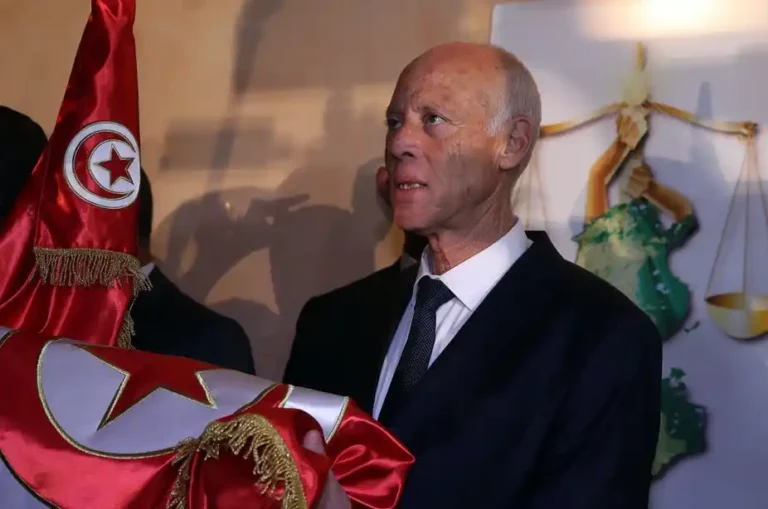Tunisia’s political scene was shaken to its core on Sunday following a major government reshuffle orchestrated by President Kaïs Saïed. Nineteen ministers, including those in charge of foreign affairs and defence, as well as three secretaries of state, were replaced without any official explanation from the head of state.
The decision has sparked questions and speculation among politicians and international observers.
The upheaval comes just days after the unexpected dismissal of the prime minister, an action that paved the way for this reshuffle within the Tunisian executive.
The new faces of the government take office as Tunisia prepares for an electoral period marked by the presidential election scheduled for 6 October.
The identities of the new ministers and the reasons for the changes have not yet been revealed.
According to the president’s office, the three newly appointed undersecretaries will support the ministries of foreign affairs, agriculture and water resources, and labour.
Although these appointments have been officially announced, the underlying political strategy remains unclear to many.
Kaïs Saïed, 66, who came to power in democratic elections in 2019, has rapidly consolidated his power.
On 25 July 2021, a coup allowed him to centralise all powers under his control, a manoeuvre that triggered a wave of criticism accusing him of authoritarian drift.
Since then, Saïed has justified his expanded control as a ‘war of liberation and self-determination’ aimed at laying the foundations of a ‘new republic’.
President Saïd is seeking a second term, claiming that his leadership is crucial to the country’s future.
But he faces determined opposition from two notable rivals: Zouhair Maghzaoui, a former pan-Arab left-wing MP, and Ayachi Zammel, a forty-something industrialist from the liberal movement. Both represent political alternatives openly critical of the Saïd government’s centralisation of power.
MN/te/sf/lb/as/APA


